Interview Reflection
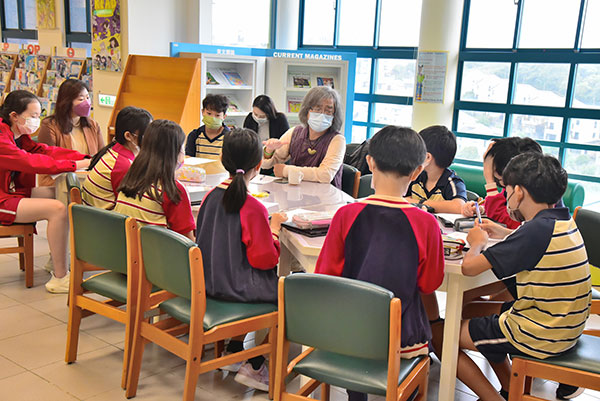
Albert Tsai/Alynna Yang/Cindy Chen/Lawrence Hu/Augus Wu
Jayden Liu/Howard Luo/Claire Chuo/Zetta Chang
Albert Tsai
After interviewing Professor Chen, I gained valuable insights and knowledge about the Satoyama Initiative and eco-civilization. He was very patient and shared lots of details with us. He was also very kind, answering our questions with further explanations. I was amazed by his passion for his work, and how he truly cares for his students. Professor Chen also shared the challenges they have faced and the lessons they have learned, which was inspiring to me. This interview was a great learning experience and I'm grateful for it.
Top
Alynna Yang
On a rainy day, Professor Chen visited our school. We began by touring the nature area, where he taught us about various plants. Afterward, we went to the library and asked questions. Professor Chen discussed the Satoyama Initiative and his own background story, and we took notes to remember the information. Eventually, it was time to say goodbye to Professor Chen, and we look forward to typing up the information we learned from him in the future.
Top
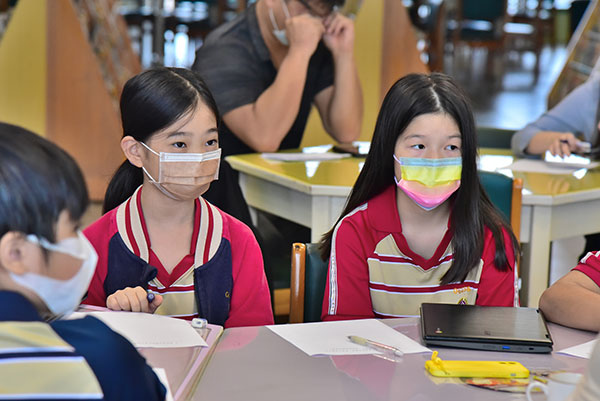
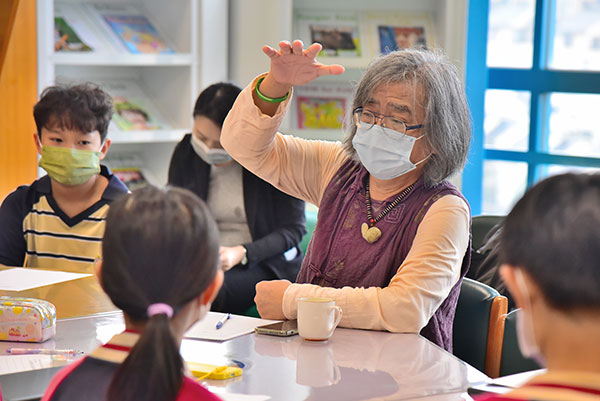
Cindy Chen
It was an honor to meet Professor Chen, and we learned a great deal from the interview. We asked him whether our school, KCIS, could carry out the concept of the Satoyama Initiative. Professor Chen explained that even though Satoyama Initiative has been declared a failure, it does not mean it cannot continue. Our school is located in the camphor forest belt below 500 meters and is mostly surrounded by woods. Therefore, we should consider planting banyan trees, which could be part of the Satoyama Initiative in our school. We learned that Professor Chen joined the Satoyama Initiative because he was interested in Ecological Civilization, which focuses on caring for animals and eco-friendly farming. We also understood that some of the native camphor trees have been cut down, so if we can, we should replant them as well as exotic plants like lantana and other Taiwan native species.
Top
Lawrence Hu
Professor Chen said the ideal situation for butterfly research is to sweep the net to catch the butterflies, mark them clearly, and then let them go immediately. The movements should be fast and gentle; the shorter, the better, although it will take more research time. If you love butterflies, then don't hurt the butterfly. I found this information on the internet. I admire Professor Chen’s profession. In order not to damage the butterflies, he made his experiment harder to complete. I am eager to learn from his spirit that does not hesitate to sacrifice himself, but still helps the animals from the danger of extinction.
Top
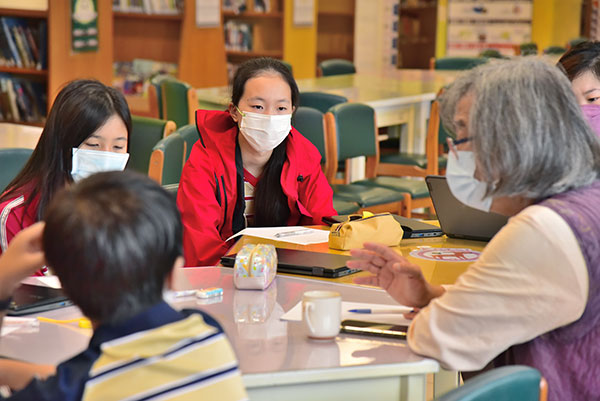
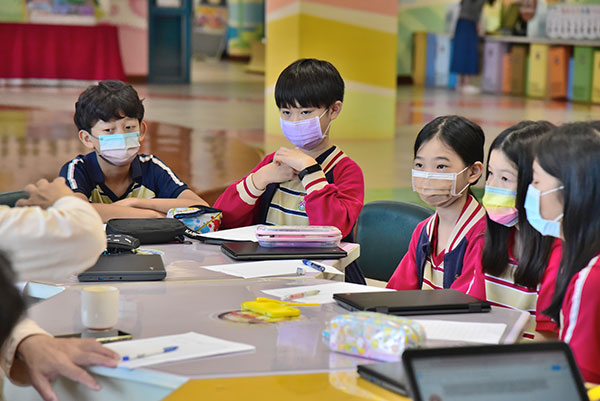
Augus Wu
On a beautiful morning, we received an even more delightful message from Professor Chen, a scholar of ecological networks and the Satoyama Initiative, which made us very excited. Professor Chen took us to the natural area of our school to familiarize ourselves with the Ecological Protection Mechanisms in place, such as a small pond for the frogs, piles of wood for small creatures to live inside, and the coolest of all - clean cherry trees for birds to eat or rest. Many Crown Feather Thrushes and Japanese White-eyes would come to enjoy the delicious cherry fruits. After walking around the school, we started to interview Professor Chen because of his vast knowledge. He answered all of our questions and provided us with a lot of helpful information that left us all speechless.
Top
Jayden Liu
It was a rainy day when we had the opportunity to interview Professor Chen. We first took him to our school's nature area to observe the animals and plants, and brainstorm ways to use the Satoyama Initiative to help maintain the area's ecological diversity and biodiversity. Professor Chen shared his knowledge of the various creatures and plants in the area, noting how many of them contain a variety of species, which he found impressive. We then went to the library, where we interviewed Professor Chen and asked him questions about what we wanted to learn and include on our website. We gained a lot of knowledge on how the endangered species of animals were previously targeted for hunting, making their protection more challenging. Overall, we learned a great deal from Professor Chen's interview, which provided us with a wealth of information to include on our website.
Top
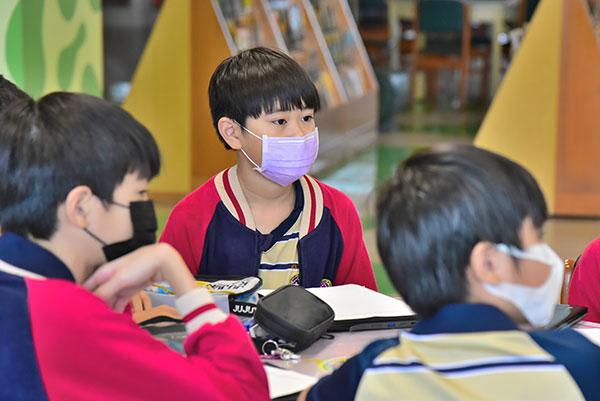
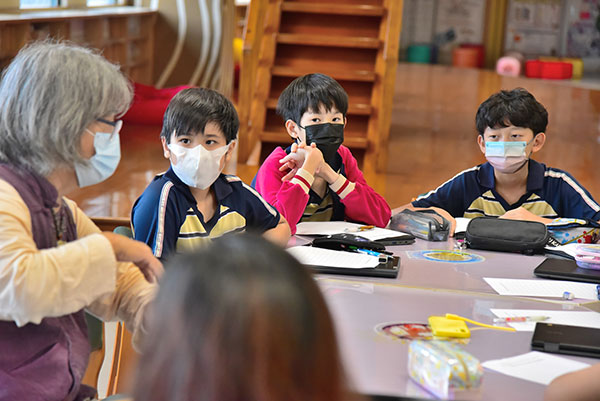
Howard Luo
After interviewing Professor Chen, I gained a better understanding of the Satoyama Initiative and how we can follow its concept to help the environment. He mentioned the origins of the initiative in Japan, as well as its implementation in Taiwan. Additionally, he talked about eco-civilization and how animals should be treated with respect. He also talked about the challenges that have been faced and the lessons that people should learn. This interview gave me the opportunity to think more widely and with greater intelligence. I am very thankful for the experience of interviewing Professor Chen, and for the assistance of the school and Professor Chen's patience in explaining everything.
Top
Claire Chuo
After interviewing Professor Chen, I learned about the requirements to be involved in the Satoyama Initiative in our nature area. We need to protect the coexistence of animals and plants and ensure diversity. By carrying out a resource survey, we can gain a better understanding of the animals in our school. We were also told about the Green Conservation Label. When the Satoyama Initiative was being promoted, Taiwan was also promoting organic agriculture. To get the label, the soil needs to be organic, with no pesticides. This interview was very worthwhile as we got to learn more about the plants and animals around us. It was a very beneficial interview with Professor Chen.
Top
Zetta Chang
For our CyberFair Club website, we interviewed Professor Chen. We began the interview at our school's natural area and proceeded to the library. Professor Chen, a retired professor, is familiar with the Satoyama Initiative. During the interview, we learned that if a concrete wall is built, small animals will lose their habitats; however, if big rocks are piled into a wall, animals like frogs and butterflies can use the gaps between rocks as their habitats. Additionally, if forests are protected too much, grass areas may disappear. Professor Chen suggested setting a fire in the forest to stop tree growth and then replanting grass to maintain a balance. We received a great deal of information from Professor Chen that we can add to our website.